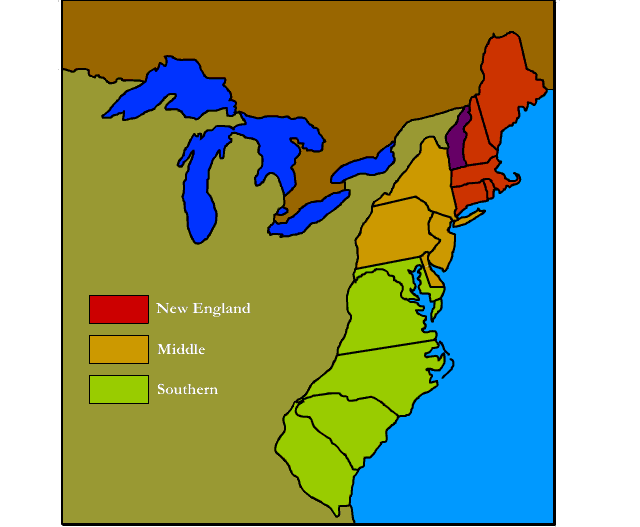Colonies - Massachusetts, Connecticut, New Hampshire, Rhode Island
Climate/Geography - Colonists in the New England colonies endured bitterly cold winters and mild summers. Land was flat close to the coastline but became hilly and mountainous farther inland. Soil was generally rocky, making farming difficult. Cold winters reduced the spread of disease.
Religion - The New England colonies were dominated by the Puritans, reformers seeking to "purify" Christianity, who came over from England to practice religion without persecution. Puritans followed strict rules and were intolerant of other religions, eventually absorbing the separatist Pilgrims in Massachusetts by 1629. Life in New England was dominated by church, and there were severe consequences for those who failed to attend, or, those who spoke out against the Puritan ways. Singing and celebrating holidays were among things prohibited in Puritan New England.
Economy - New England's economy was largely dependent on the ocean. Fishing (especially codfish) was most important to the New England economy, though whaling, trapping, shipbuilding, and logging were important also. Eventually, many New England shippers grew wealthy buying slaves from West Africa in return for rum, and selling the slaves to the West Indies in return for molasses. This process was called the "triangular trade."
|
